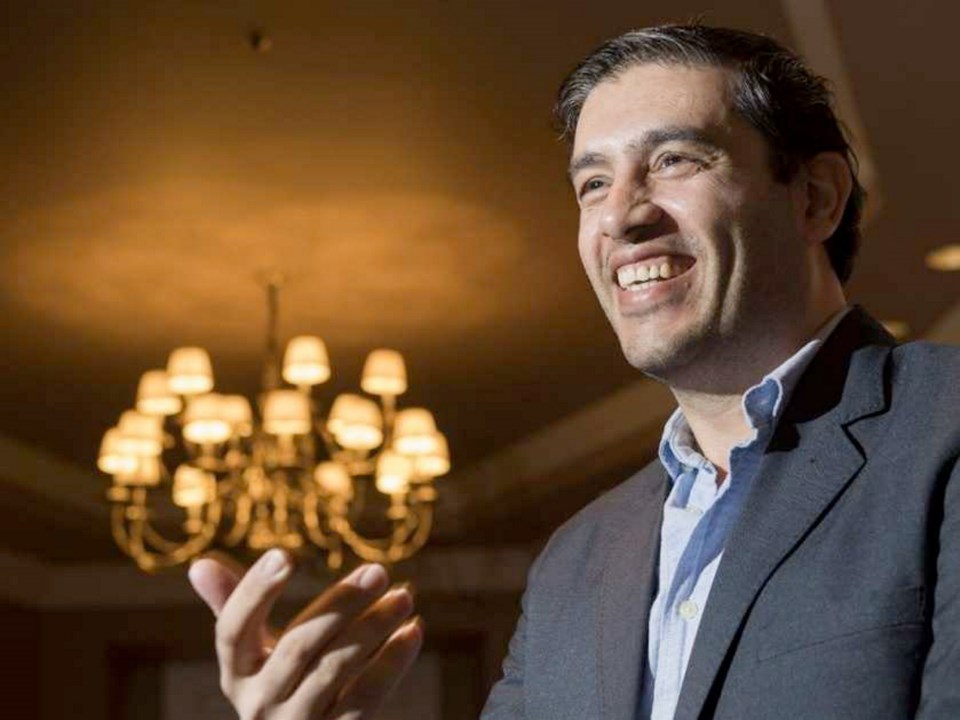As the U.S. president tries to close his borders to refugees from Iraq and Syria, an Abbotsford company’s refugee employees from those countries are building high-end doors and windows destined for sale in the U.S.
Brian Davies, human resources director at Dynamic Windows and Doors, said the firm started hiring refugees in 2013 to deal with a labour shortage. Today, the proportion of refugees among the firm’s 230 workers approaches 40 per cent.
“We were looking at needing some more people, and got connected with a church group,” said Davies, whose company was among 100 firms at a Friday forum in Vancouver sponsored by the non-profit Immigrant Employment Council of B.C.
“It has kind of snowballed from there,” Davies said, adding their hires included “a lot of folks from Iraq, from Syria, from Burma.”
Most of what they make, about 90 per cent, is destined for the U.S. luxury market.
The council has been holding an annual event since 2009 aimed at putting employers together with immigrants and refugees. This year’s event can’t help but take note of the Trump presidency and other global efforts to restrict immigration and refugees, council CEO Kelly Pollack said.
“When we’re talking about what’s going on in the world, and the incredible rising tide of bigotry and xenophobia that we’re seeing — Brexit, the U.S. election — we also see this as an opportunity,” Pollack said.
“As sad as it is, in some ways Canada is poised to benefit,” she said.
“In that world, where large international companies are increasingly looking for skilled talent from around the world, the ones who have head offices here in Canada and British Columbia, they’re going to have an easier time attracting talent than folks in the U.S.”
Since 2015, some 5,000 new Canadians who arrived here as refugees have settled across B.C., Pollack said.
Among them is Syrian computer technician Yousef Hadla, one of the conference speakers, who came to Canada about a year ago with his wife and two sons — the boys now aged six and eight — after three years as refugees in Jordan.
The fighting had come close to their hometown of Darayya, just south of Damascus, and they finally fled in 2013 when Hadla’s brother-in-law vanished after an encounter at a roadside checkpoint.
Hadla, 33, had studied information technology and graphic design in English while still in Syria, but he admits that his reading is better than his speaking.
“When I came here I took ESL classes, I worked very hard to improve my speaking,” Halda said.
He and his family live in Chilliwack with a private sponsor.
They’re all working on their English — his boys picked it up quickly in public school. He bought a 16-year-old Ford Taurus for the commutes into Vancouver for ESL classes, and the family spent a couple of summer afternoons at Cultus Lake.
His sponsor helped him with job applications, and those efforts have paid off with a job interview set for next week. Hadla is hoping to land four month’s work as a web developer for Elections B.C. in Chilliwack.
Friday’s forum at a Vancouver hotel included representatives from both small and large companies looking for people like Hadla, that latter group including Telus, Starbucks and the Business Development Bank of Canada.
Also Friday, the council launched an online tool aimed at putting employers together with refugees and recent immigrants seeking work. Hadla was among those who posted his resumé.
At Dynamic Windows and Doors, all the company’s new hires are put through in-house training, Davies said, because “people come to us not knowing how we do what we do. Not many people make wood windows and doors.”
He said the challenge with hiring immigrants and refugees is their ability to speak English. Refugees often have to wait for English language training.
“Initially there was not a support network of folks here that could speak other languages, specifically Arabic,” he said. “It’s much easier now.”
Davies said his firm hired 20 workers last year, some of them refugees, and is looking to hire 15 more this year to meet demand. The latest to be hired are among the Syrian refugees who came to Canada in early 2016.
“We’re just starting to see them enter the workforce because they’ve been going through language training, banking and all the basic stuff that you need to have here in Canada,” Davies said.



